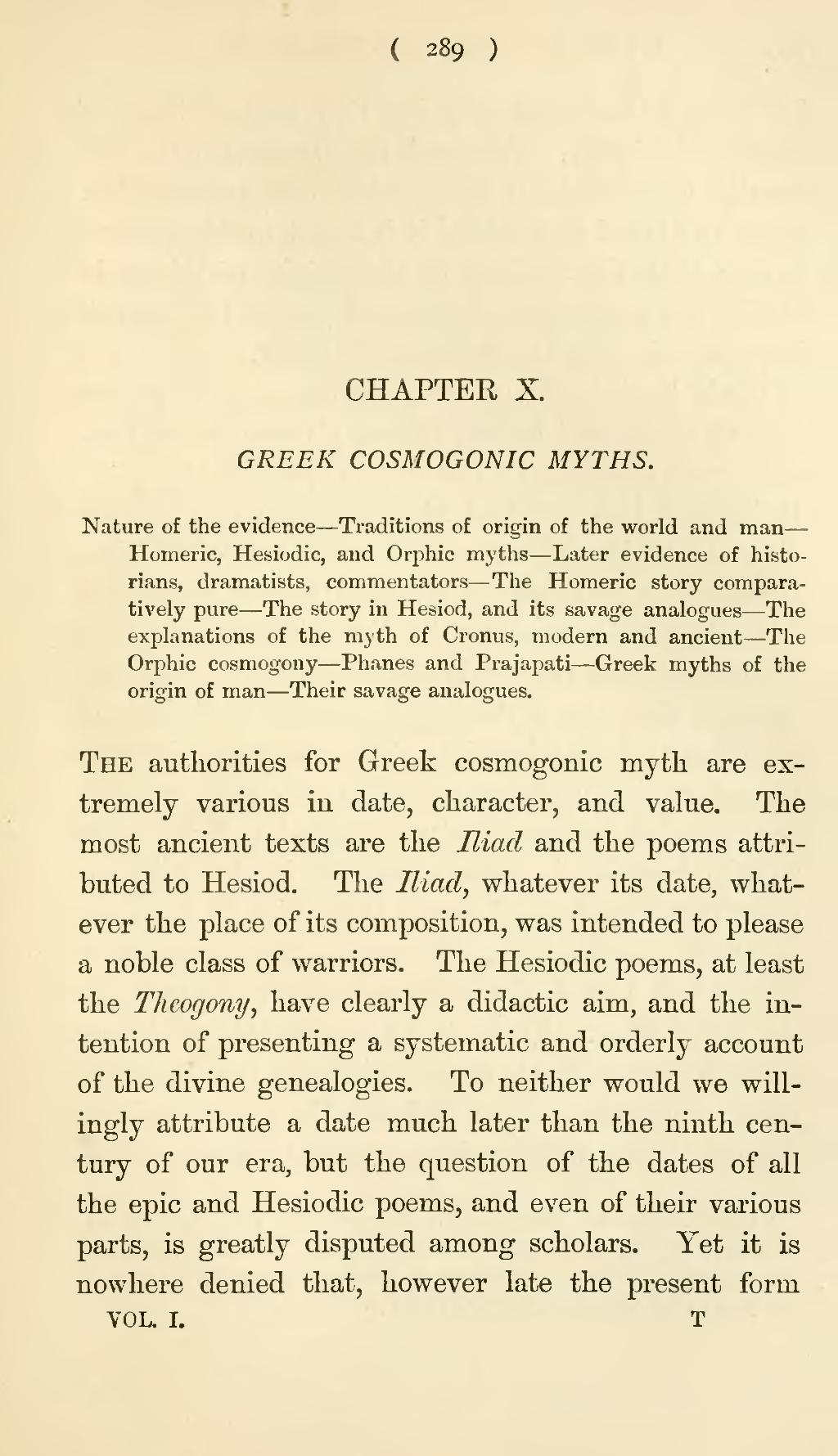CHAPTER X.
GREEK COSMOGONIC MYTHS.
The authorities for Greek cosmogonic myth are extremely various in date, character, and value. The most ancient texts are the Iliad and the poems attributed to Hesiod. The Iliad, whatever its date, whatever the place of its composition, was intended to please a noble class of warriors. The Hesiodic poems, at least the Theogony, have clearly a didactic aim, and the intention of presenting a systematic and orderly account of the divine genealogies. To neither would we willingly attribute a date much later than the ninth century of our era, but the question of the dates of all the epic and Hesiodic poems, and even of their various parts, is greatly disputed among scholars. Yet it is nowhere denied that, however late the present form
